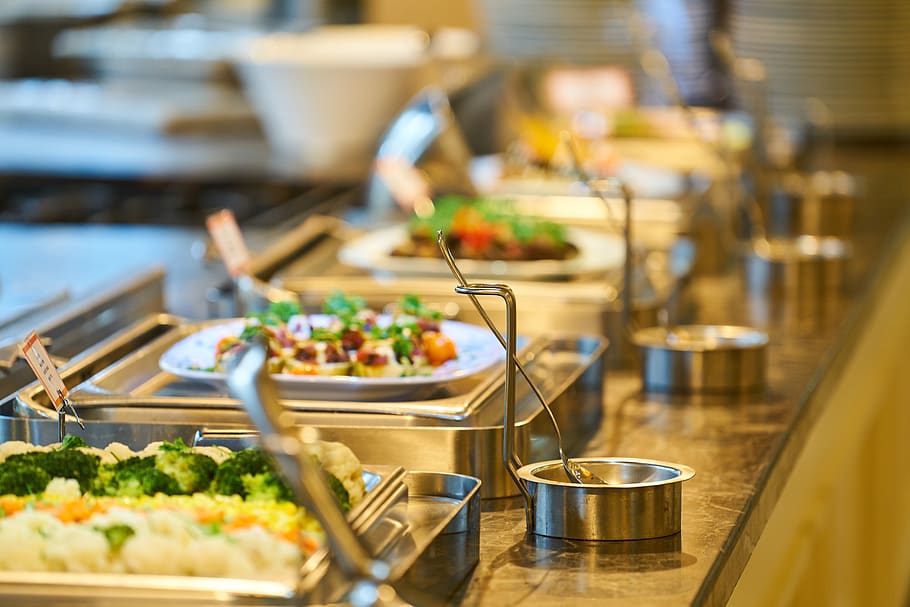Last Updated on December 23, 2022 by Hooria Batool
Reasons to starting a catering business
Maybe you were once employed in the restaurant industry, or you have taken classes at school where food was served, or maybe there is just something about cooking that gets your juices flowing! Whatever it may be, if you’re thinking of starting a catering business, read on. The following article will give an outline of what to expect when starting up and running your own catering business.
This section discusses the potential benefits of operating a caterer’s service
There are multiple advantages to operating your own catering company. The main advantage is financial gain, which can come from both providing services for private functions as well as corporate functions. Some other benefits include gaining experience in different areas of work such as marketing, event planning, etc. that can be used in other industries or just to boost your resume. You will also have the opportunity to work with people on a daily basis, which is always an excellent way to broaden your network of connections.
Benefits to running your own catering company
While there are many benefits to running your own catering company, there are some negatives as well. The main drawback many find is that while you may gain initial monetary income it can be difficult to keep up with the demand of both private and corporate functions; this means that you can possibly end up working more than 40 hours per week without even realizing it! Another problem is finding reliable employees (if you decide on hiring others) because not everyone is trustworthy, and the last thing you want is for an employee to ruin a client’s private function or perhaps steal from your business.
Read More: How to start a dog walking business? All the important information
Research and choose a location:
Research:
The first step in starting up your own catering service is doing intensive research on everything related to catering companies. Take notes during this stage so that you can refer back to them as needed.
You should also perform market research such as internet searches and talking with those who currently operate their own catering businesses (if possible). This information will give you insights into what you’re getting yourself into as well as current trends/market needs which can even include new equipment that will set business apart from others. Unfortunately there simply isn’t any one definitive resource with all the information you’ll need to get started.

Choosing a location:
Hire help from people who are familiar with the catering industry, since they will be able to give more insight on what’s needed for your business. Some of the items that must be considered include storage facilities, freezers and refrigerators, food preparation stations (sinks/ovens), etc. Use resources like Google Maps Street View (and fly-over videos) to see if there is enough parking space in front of the building as well as road access for trucks/vehicles which carry equipment or deliveries.
You can also ask about available utilities such as electricity and water; however most areas offer access to these regardless of whether or not the location is available for lease. Remember that you will need to sign a legal contract with the owner of the place where your business will be set up so it’s important to do your research beforehand to prevent any future problems or conflicts.
The expenses:
The expenses depend on whether you are starting from scratch or if you already have some equipment/supplies. If you’re starting from scratch then expect costs such as buying tables, chairs, plates, cutlery, etc. which aren’t cheap but definitely don’t cost too much either (especially when bought second-hand). Other costs can include transportation costs (to get equipment and supplies) as well as storage facilities since things must be kept safe if you plan to use them later or sell them.
But remember that along with start-up costs, you will need consistent money flow which can come from the following resources:
● Credit cards/loans
The first two are preferable since they won’t cost you interest but consider them carefully before borrowing any money. Remember that poor financial management is one of the main reasons why businesses fail within their first year so it’s important to keep everything under control by doing research beforehand and considering other people’s experience in this industry.
How to decide on a catering service menu/price list?
You must consider what type of food service your clients are interested in (buffet, plated, etc.) as well as their price range. If you provide food buffet style then each item on the menu must be priced accordingly so that it will cover costs (and hopefully make a bit of money for your business).
The food service prices depend greatly on the area where your business is located; i.e. if in an expensive area then clientele would not mind paying high prices but to remain competitive, lower prices may also be needed in other areas/cities to attract customers (especially when they can choose from other local businesses offering similar services).
Read More:
How to find clients?
You should plan ahead when looking for new clients since catering companies are busy during holidays and weekends which means you’ll need to hire additional help if overworked; also, set business appointments (one client leads to another). To find new customers, start by looking at your current contacts lists which can give you an idea of who may be interested in getting catering services. You must also approach friends/acquaintances and family members since these are usually the best starting points; however if they don’t know anyone else then it may not be worth working with them.
Even though many people feel that once you have clients then clients will come automatically, this simply isn’t true because word-of-mouth promotion will only take you so far and in some cases (especially when competing with large companies) may not even be enough. The following tips can help you in promoting your business:
- Choose a catchy name for the company and register it just to be sure that no one else is using it (if there’s even a small chance of someone else choosing the same name then find something different).
- Make sure that your promotional materials such as fliers, business cards, etc. don’t look cheap; i.e. invest in good quality design software and printing services so they can convey professionalism and reliability.
- If possible set up a website since this will show customers how serious you are about catering and increase your chances of being found online by potential clients.
- Promote yourself on social networks like Facebook or Twitter since these sites have millions of users who may be interested in your company.
- Make sure to include catering information on all of your business cards and fliers so that potential customers have them readily available when they need it.
- Join local organizations especially if there are events or fundraisers since people attending will be interested in getting catering services which can bring additional business for you.
Conclusion
There is immense satisfaction in starting and running a successful business. Despite their competitive nature, catering businesses offer relatively low overheads and are easy to scale and build.













